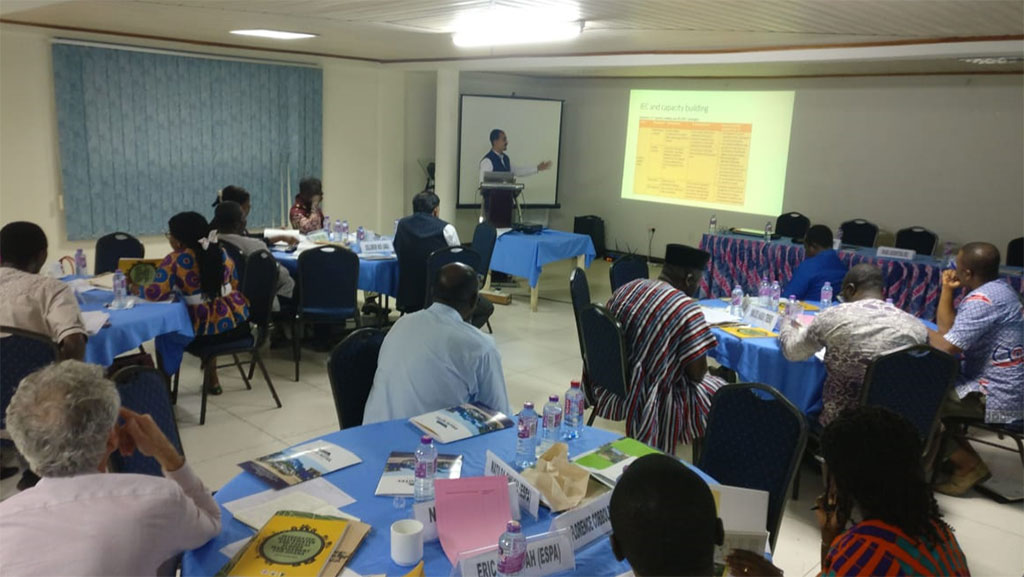Round-Table Meeting on Wastewater and Faecal Sludge Management Held in Accra
Document titled “Integrated Wastewater and Faecal Sludge Management for Ghana”, being jointly prepared by CSE and IIR-CSIR, formed the basis for the meeting
Accra, September 6, 2019: Centre for Science and Environment (CSE), the New Delhi (India)-based research and advocacy think-tank, recently joined hands with Ghana’s Institute of Industrial Research (IIR) (under the Council for Scientific and Industrial Research or CSIR) to organise a round-table meeting on management of wastewater and faecal sludge in the country. The meeting, attended by representatives of 15 institutions from across Ghana, was held in Accra.
CSE and IIR-CSIR are jointly preparing a draft guideline document titled Integrated Wastewater and Faecal Sludge Management for Ghana. According to Suresh Rohilla, senior director-water and wastewater management, CSE, “the meeting brought together stakeholders in the waste management value chain to make inputs to this guideline document”.
Institutions that were represented at the meeting included the National Development Planning Commission (NDPC), Environmental Service Providers Association (ESPA), International Water Management Institute (IWMI), Skyfox Ghana Limited, etc.
In his opening remarks, Dr Francis Boateng Agyenim, director, IIR said: “Ghana has a lot of policies and plans in place, especially in the area of sanitation -- but only a few of these have been implementable for effective wastewater and faecal sludge management.” He explained that a major threat for most cities across the Global South is the issue of waste management – this needs utmost attention of all, including corporates. Dr Agyenim reiterated IIR’s commitment to addressing issues relating to waste management and cited the Zero Waste Disposal (ZeWAD) project which is currently being piloted at the Institute to harness the usefulness of waste as a resource.
Dr Joseph Ampofo, chief research scientist of CSIR, who chaired the meeting, introduced the draft guideline document which was presented to him by Rohilla. “This is a fantastic document and it calls for platforms such as this to engage stakeholders who can make inputs towards having a comprehensive document for implementation,” he remarked. He also entreated participants to utilise the opportunity and contribute to the draft document drawing experiences from various projects and assignments they have undertaken, as well as knowledge from international best practices.
In his address on the occasion, Rohilla explained that the expectation of the researchers is to develop a guideline document that is practical and implementable at metropolitan, municipal and district levels where its impact would be visible. “We intend to develop guidelines -- not policies that are just political talk and may not be implementable. When these guidelines are implemented and are seen to be working, it will attract the attention of policy makers to adopt and replicate,” he said.
Rohilla said CSE is committed to working with partners such as CSIR-IIR to find solutions to the challenges that confront most countries of the Global South, especially in the area of waste management.
Nigel Paul, a professor from Lancaster University, UK, who was present at the meeting congratulated CSE and CISR-IIR for the great work done and encouraged partners to pursue practices that will go to improve the environment and make life better.
For more details: Bhitush Luthra, CSE, Mobile: +91 9910340470, Email: bhitush@cseindia.org
Link to the meeting details Click here








Share this article